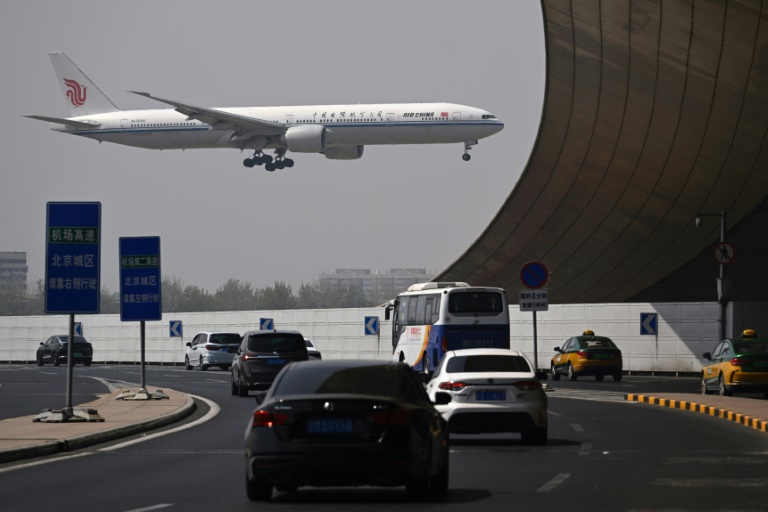Pakistanis’ recent visa denials have meant that more of them are looking for work at home, which has been a boost to the tech giant’s bottom line When opportunity knocks, it does not always come in the form of open borders. For Systems Ltd — Pakistan’s largest and most successful IT exporter — the gate to profitability in 2024 did not swing open on new foreign markets or a tech breakthrough. It swung closed — on Pakistani professionals trying to leave the country.
In a corporate briefing held on April 10, Systems Ltd talked about a counterintuitive edge it has gained in a global economy plagued by slowdowns and restrictions: Pakistanis’ restricted access to foreign work visas. While this development has left thousands of skilled professionals frustrated and grounded, for Systems, it has created a captive pool of tech talent — available, affordable, and increasingly necessary for scaling its global delivery operations. The company’s message to investors was understated, but the subtext was clear.

At a time when many Pakistanis can no longer leave the country to find work abroad, Systems Ltd has positioned itself as the best — and in some cases only — local alternative. In a country where “getting out” has long been synonymous with success, Systems is now betting that “staying in” can be just as lucrative. According to company disclosures, Systems Ltd employs over 82% of its workforce in Pakistan.
And 2024 presented a turning point. As visa restrictions tightened in markets like the Gulf, Europe, and North America, outbound mobility of skilled tech workers — already expensive and bureaucratically limited — slowed dramatically. Throughout much of 2022 and 2023, Systems struggled with retention, as talent drained out of Pakistan seeking better pay, global exposure, or simply economic stability.
The company responded with aggressive salary hikes, including a 20% average pay increase for employees at the start of 2024, designed to hold the line against inflation and stop attrition. But by mid-year, external conditions started to do the job for them. With visa regimes becoming more selective and outbound employment pipelines for Pakistani IT workers stalling, Systems suddenly had access to a more stable, immobile workforce.
The company did not just benefit passively — it capitalized. That windfall of stuck-at-home tech labor translated directly into operational stability. Despite margin pressures, 2024 was a year of operational expansion for Systems.
The company reported a 27% increase in USD-denominated revenue, reaching $242.35 million — its highest-ever topline. Gross and operating profits also hit record levels in local currency terms.
However, net profit fell to RS7.46 billion (USD $26.8 million), down 14% year-on-year, primarily due to the Pakistani rupee’s unexpected appreciation.
Unlike 2023, when Systems enjoyed an $8 million foreign exchange gain, 2024 saw a loss of nearly $1 million due to currency headwinds. Still, the core of the business remains robust. With 94% of revenue derived from foreign clients and a significant portion of expenses (57%) paid in rupees, the underlying economics of Systems’ model remain attractive.
The company’s gross margin profile, while pressured, is still well above local industry norms — a reflection of its ability to scale efficiently. Notably, Systems added 14 new enterprise clients in 2024, bringing its active client count to 250. Its largest client alone now contributes over $25 million annually — a milestone for a company that has steadily moved away from project-based billing to long-term recurring revenues.
The idea of Pakistan becoming a global outsourcing hub has long been more aspiration than reality. But Systems Ltd might be the country’s best shot yet. The company’s cost structure is its most potent weapon.
With a delivery model rooted in low-cost, high-skill labor, Systems has remained attractive to global clients even as wages have risen. The visa restrictions add a new layer of competitiveness: tech workers who can’t go abroad are now finding career growth — and decent pay — at home. For decades, the “brain drain” was Pakistan’s most predictable export trend.
Doctors, engineers, coders — all trained locally, all hired globally. That narrative hasn’t ended, but it’s now disrupted. With governments tightening immigration across the board, companies like Systems offer a Plan B that did not exist a few years ago.
This shift carries profound implications. For one, it keeps talent inside the domestic economy, circulating wealth, skills, and income locally. More broadly, it may alter the very trajectory of the Pakistani tech industry.
If the best graduates of top-tier universities like NUST, FAST, and LUMS start viewing local tech firms as career destinations — not stepping stones — the country could build a deep, sustainable bench of software talent. Of course, there is an ethical complexity to profiting from geopolitical roadblocks. Systems didn’t lobby for stricter visa policies; it simply adapted to the environment.
But in doing so, it reveals a larger truth about the modern global labor economy: mobility is no longer a guaranteed asset — and immobility, in some cases, can be monetized. While this may sound cynical, Systems is arguably doing something constructive. It is creating high-skilled jobs within Pakistan that meet global standards.
It is absorbing talent that might otherwise be idle or underemployed. It is becoming, in the absence of open borders, a domestic proxy for the global tech dream. That said, Systems cannot afford complacency.
Salaries are rising, and global clients expect world-class outcomes. The company must now prove that its productivity, not just its price, justifies its positioning in the international outsourcing marketplace. While the bulk of Systems’ human resources remain based in Pakistan, the company has quietly expanded its delivery footprint into newer geographies.
Egypt, once a minuscule part of its HR map, now accounts for over 3% of its workforce — up from just 0.55% in 2022. Offices in the UAE, Qatar, and Saudi Arabia account for another 15%.
Saudi Arabia, in particular, is a key growth market. As Riyadh pushes ahead with Vision 2030 and reforms aimed at tech modernization, Systems is positioning itself as a preferred partner for IT and business transformation. The lower cost of Pakistani labor — now accessible even more due to travel restrictions — makes the value proposition even more compelling.
By exporting services while importing capital and job creation, Systems is performing a national service, even if unintentionally. In an economy battered by inflation, political instability, and debt, the company’s success story is one of the few bright spots. Systems’ management has shifted its strategic focus from chasing rupee depreciation (as it did in past years) to operational efficiency.
It is a prudent pivot. Betting on currency swings is a dangerous game. Investing in automation, client growth, and workforce retention is far more sustainable.
The company has guided for 20–30% growth in IT exports over the coming years, driven by new enterprise accounts and deepening relationships with top clients. It has also reaffirmed its commitment to organic growth — a reassuring sign in a sector often distracted by high-risk acquisitions. But the real test lies in whether Systems can convert its temporary labor advantage into long-term institutional strength.
Visa restrictions may ease. The global economy may rebound. The best talent may once again seek opportunities abroad.
When that happens, will Systems be compelling enough to keep them home by choice? In a market defined by flight — of capital, of talent, of opportunity — Systems Ltd is a company rooted in what remains. Its greatest asset in 2024 was not what it exported, but what it retained: people. Skilled, stranded, ambitious people.
That is a strange foundation for success. But in today’s fractured world, it may be the only one that matters. Save my name, email, and website in this browser for the next time I comment.
Δ document.getElementById( "ak_js_1" ).setAttribute( "value", ( new Date() ).
getTime() );.
Top

Trapped talent, rising profits: Systems Ltd and the economics of immobility

Pakistanis’ recent visa denials have meant that more of them are looking for work at home, which has been a boost to the tech giant’s bottom lineThe post Trapped talent, rising profits: Systems Ltd and the economics of immobility appeared first on Profit by Pakistan Today.











